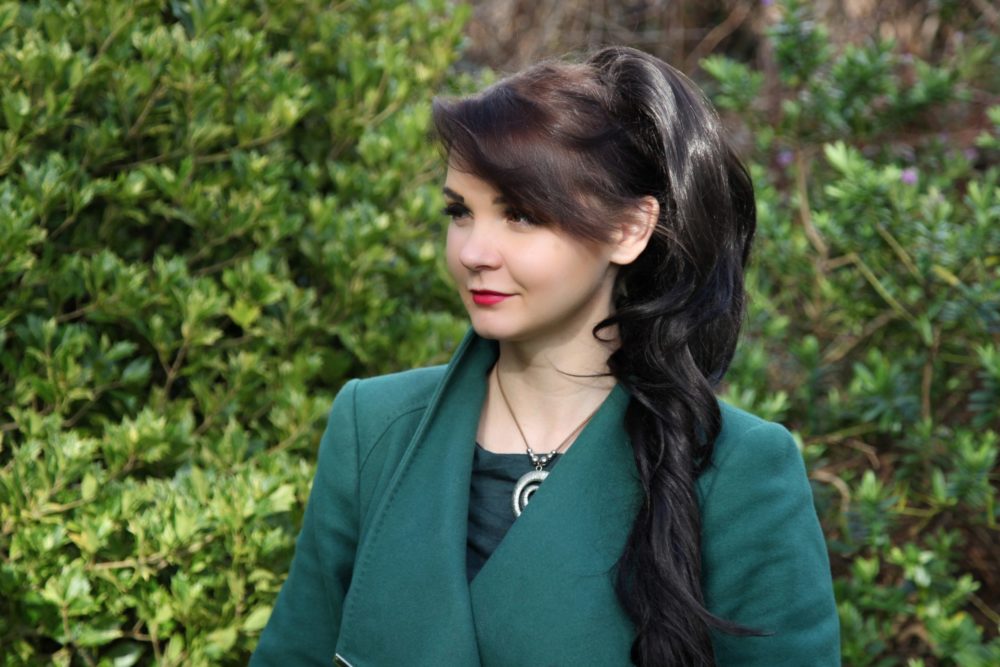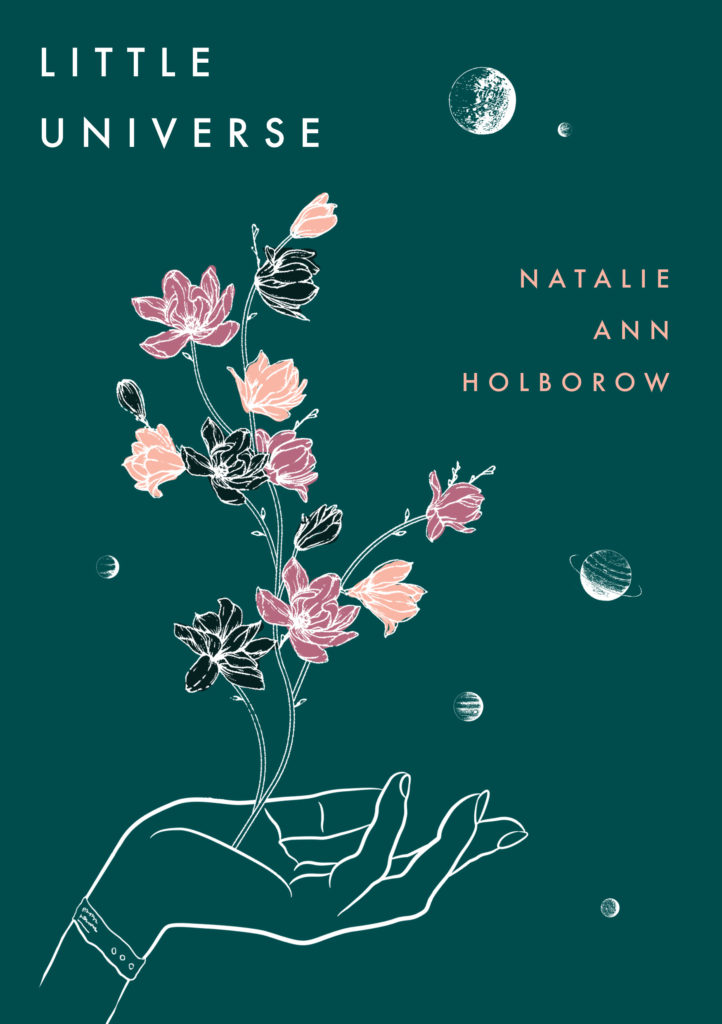On Being a Poet in Wales: Natalie Ann Holborow

Natalie Ann Holborow
Twenty two hours with my head lolled against my grandfather’s hospital bed, stroking his hand in mine, I’m watching the sunrise break, yolk-yellow, over Swansea Bay.
Outside the door, nurses and healthcare assistants split seas across the tiles in rubber shoes. Their voices are muffled but gentle behind their masks.
“How are we doing, lovely?” asks a nurse, stroking my grandfather’s hair back, adjusting the IV bag that dangles beside him.
In my poem, ‘Waiting to Say Goodbye’, I describe how “I’m standing in water up to my waist / but the cafe isn’t flooded / it just feels like it”. This is the closest I can get to describing that in-between stage of knowing the inevitable goodbye is coming, inching closer like rising water.
Bittersweet, to say goodbye behind these hospital walls that we see flashed across our TV screens every day through lockdown – and that Gower landscape we loved to explore stretching infinitely outside the windows of Singleton Hospital.
Thriving
My third collection, Little Universe, is not only a book of grief but one of deep love for both the people in my life and the Welsh landscape I’ve called home since the day I was born. In this hospital, siblings were born, people departed, prayers were muttered. At 8, I was diagnosed with diabetes just a few floors away, again watching that same stretch of sea move in and out, easy as breath.
Born and raised in Swansea, poetry didn’t appeal to me until I turned 16 and discovered Seamus Heaney’s ‘Mid-Term Break’. The final lines: “A four-foot box, a foot for every year”, struck me with a quiet but devastating finality.
The measured, controlled language contrasted with the deep sorrow and grief that it conveyed, and the understated delivery of this line left a lasting emotional impression on my teenage self.
This, I thought, is what poetry can do. And it’s powerful.
Dylan Thomas
From there, I began my poetic journey. I devoured Dylan Thomas’s work, poring for hours over his unsettling imagery, never quite letting the reader in fully but making them work hard for days, months and even years after finishing reading.
On the day of my grandfather’s death, I re-read ‘Do Not Go Gentle’ and found it hitting me in a way that it had never done before.
During my university years, I discovered the Welsh publishers Parthian (now my publisher) and Seren, who published work that was deeply influential on me: from Jemma L. King’s The Shape of a Forest to Clueless Dogs by Rhian Edwards, I started to become aware of the rich talent we have here in Wales. It wasn’t until my Terry Hetherington Award win in 2014 that I realised that not only do we have a wealth of literary talent here, but it’s also an encouraging community.
Other writers, I learned, are not my competition. They’re my inspiration and my comrades. Swansea, Cardiff, Bridgend and Porthcawl are all places in South Wales with a busy spoken word and poetry scene.
In Wales, we’ve always known that poetry has a place.
“At a local level, the village poet might be called on to craft an englyn for someone’s gravestone or might turn his or her hand to the making of a humorous cywydd, for recitation at a gathering in the pub, to celebrate Mrs Jones passing her driving test at the umpteenth attempt,” the late and great poet and lecturer Nigel Jenkins once told me. “At a more elevated level, the National Poet might be expected to voice the nation’s grief at a mining disaster or to echo its joy at winning the rugby Grand Slam.” Poetry in Wales has what Jenkins referred to as a “ritualising power”, with an incredible ability to distil and express the emotions of a community as a whole.
With every piece of art produced, there’s human expression in it. For every emotion, there’s a poem or a song that can offer us comfort or perhaps capture those hard-to-describe feelings of being in love or trap the essence of a fleeting childhood memory. There’s something in art that we can connect with on an emotional level.
Literary bubble
Where it gets difficult, however, is breaking out of the Welsh literary bubble where everyone knows everyone but it’s terribly difficult to get our voices heard across the rest of the UK.
“It’s pretty impressive you’ve written a book,” I was once told across a dimly lit restaurant booth on what was probably one of the worst Tinder dates in history. “But you really should get elocution lessons. You don’t sound like you’ve written a book. The Welsh accent makes you sound less intelligent.”
Needless to say, there were no further dates with this man (also, if he’s reading this, I’ve now written three books. And whenever the words “year”, “here” or “ear” appear in my poems, you bet I still pronounce them all the same).
There have been some notable successes, of course. Jonathan Edwards, brilliant poet as he is, deservedly won the Costa Prize for Poetry with his book My Family and Other Superheroes. Previous Terry Hetherington Award successes Thomas Morris and Jemma L King have both been shortlisted for the prestigious Dylan Thomas Prize.
But I’ve actually done more readings in Ireland and India than I have across the rest of the UK. I was lucky enough to read at Hay Festival in 2017 with fellow Welsh writers and the wonderful writers we met in India, but looking at the programmes each year I’m dismayed to see how few Welsh writers are featured.
While Wales has a rich literary tradition, it has historically been marginalised within the broader context of the UK, particularly in comparison to the dominance of English literature. Welsh poets often struggle to gain recognition on a larger scale, as literary centres like London may overlook voices from Wales.
Staying true
The tides of Wales are inescapable in my poetry, and in many ways, they represent the emotional ebb and flow of life here. Writing about Wales is a return to home, both physically and emotionally. It’s an act of honouring where I come from, the land that has shaped me and continues to influence the way I view the world.
But there’s more than just nostalgia in this return. Writing poetry in and about Wales is an act of preservation, a way of capturing the nuances of a place that has been historically underrepresented in wider literary circles. The landscape, the language and the culture all form a tapestry that makes Welsh poetry unique, but it’s also what makes it difficult to break through to a larger audience. The wider UK may view Welsh poetry through the lens of regionalism, not fully appreciating the universality within our specificities.
And yet, it’s precisely those local details that give our poetry its power.
Ultimately, I think being a poet in Wales is about resilience. It’s about staying true to our roots, even when the broader literary world may not be listening as closely as we’d like. In the end, I write not to seek approval from outside but to document the lives, landscapes, and emotions that I know intimately. If the rest of the world catches on, then of course that’s wonderful.
But if they don’t, I will still have written something that speaks truth to this place and its people.

Natalie Ann Holborow’s third poetry collection Little Universe is published by Parthian Books.
Support our Nation today
For the price of a cup of coffee a month you can help us create an independent, not-for-profit, national news service for the people of Wales, by the people of Wales.





